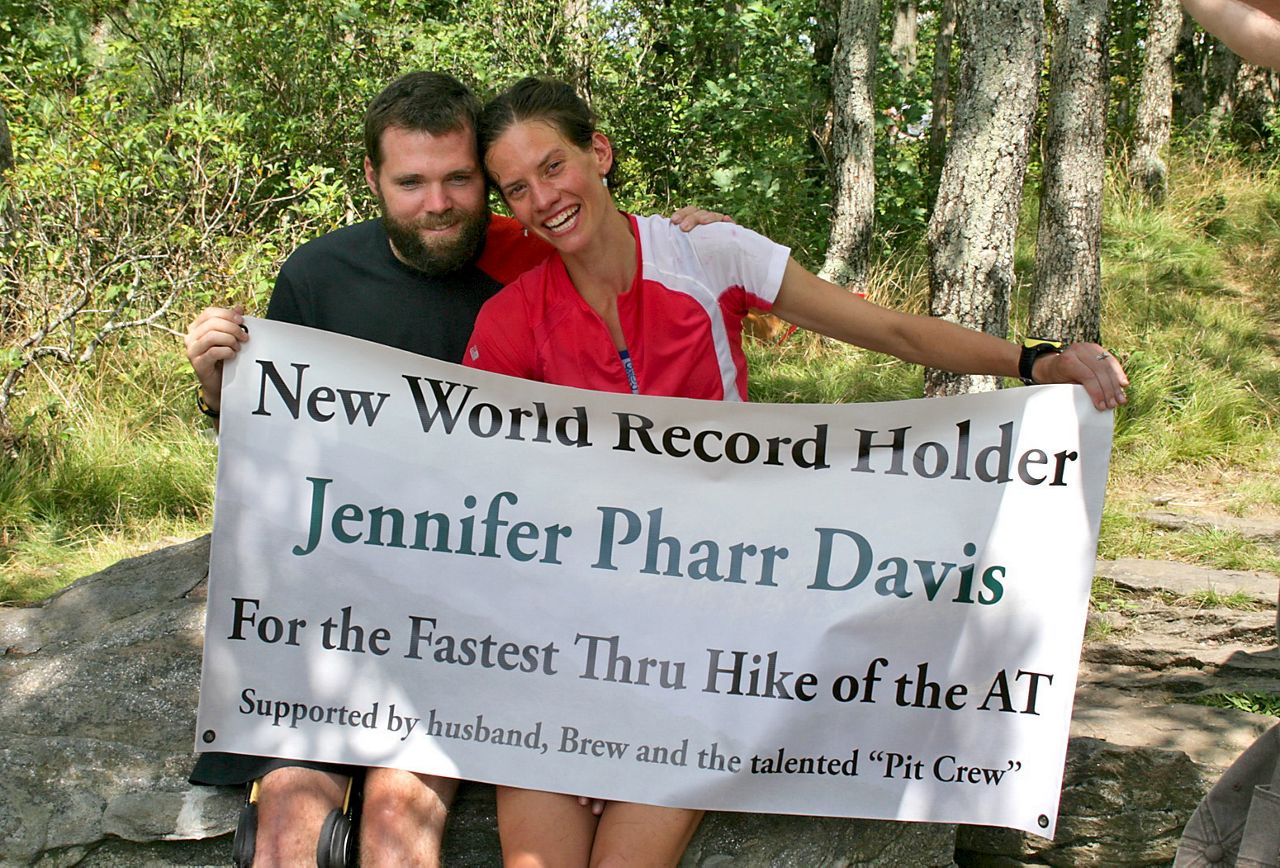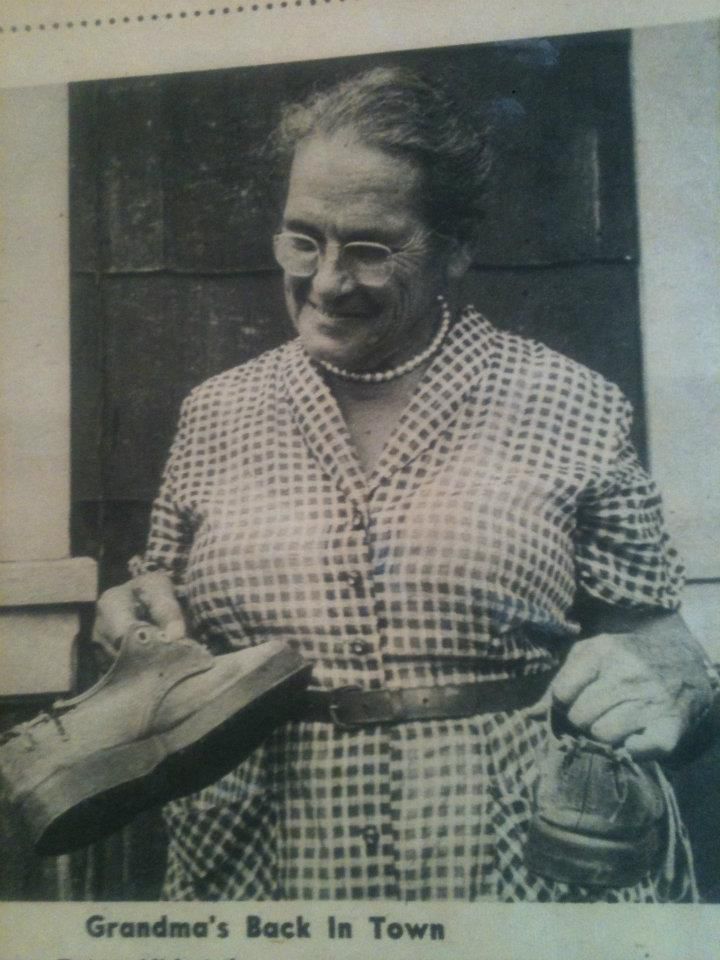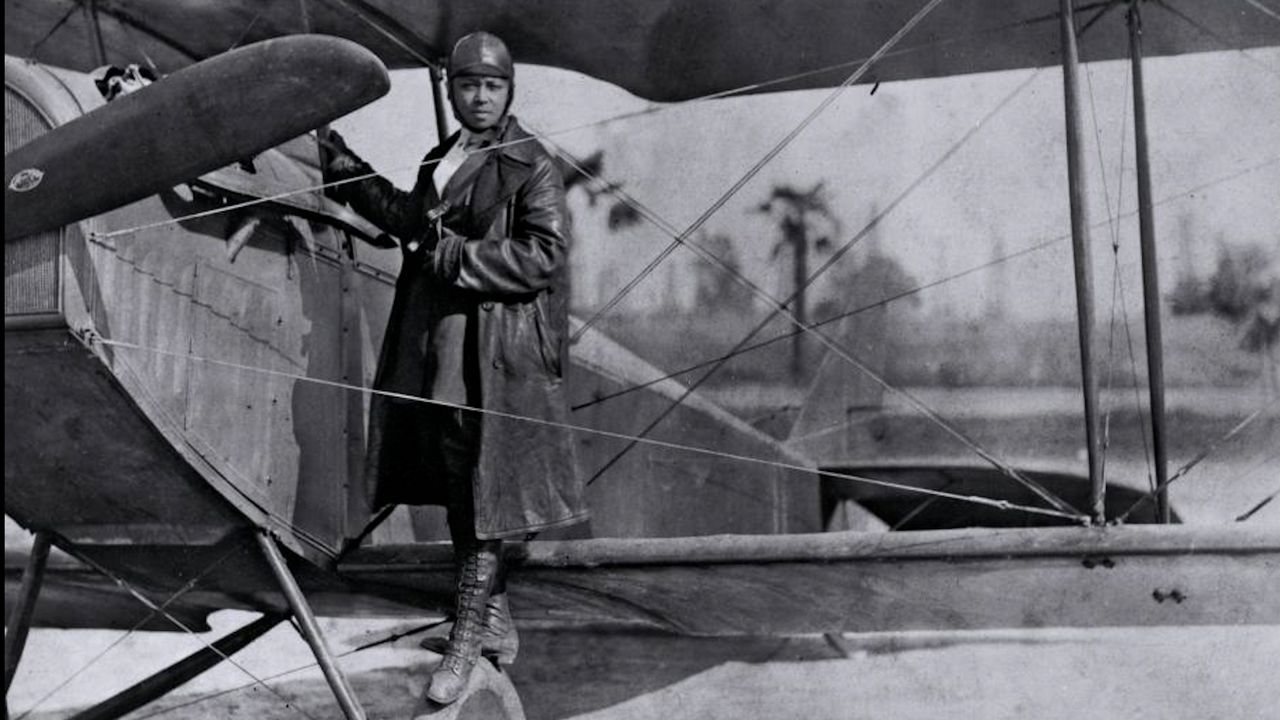In celebration of Women’s History Month, we’re bringing you stories of trailblazing women — literally, in this case. Emma Gatewood, affectionately called Grandma Gatewood, started hiking long distances at age 67, racking up tens of thousands of miles in the following years. Her example inspired future generations to chart their own paths.
Putting one foot in front of the other — that’s the strategy of long-distance hiker Jennifer Pharr Davis.
“It's just the relentlessness, because some days the hardest part is the climb and the terrain, and some days the hardest part is the weather,” said Pharr Davis. “And some days it's mosquitoes or black flies, and some days it's loneliness.”
In 2011, it took Pharr Davis 46 days to break records and barriers — she became the fastest person to hike the Appalachian Trail and the first woman to hold the overall record.

But that wasn’t Pharr Davis’ first record-breaking hike. She first got the women’s record three years earlier in 2008.
“I finished in 57 days and established a women’s record, and that was really that was supposed to be it,” she said. “I was supposed to walk down the mountain and go home and just focus on work and life and all the things. But it bugged me because I knew I still had more left, and I realized I had limited myself from the beginning.”
There is a long history of testing your limits on the Appalachian Trail. At 67 years old, Emma Rowena “Grandma” Gatewood became the first woman to hike the Appalachian Trail solo.
Gatewood’s path to notoriety was one filled with twists and turns. Born in 1887 in Ohio, she was one of 15 children. She was married at age 19 to Perry Clayton Gatewood.
“She was abused for 30 solid years through bearing 11 children,” said Ben Montgomery, a journalist and the author of “Grandma Gatewood’s Walk.”
“When she finally had the audacity in 1941 to file for divorce, that's when she started walking. I think she did it to sort of say to everybody, ‘I can do this. I, for the first time in my life, decided I'm going to do something independently.’”
In the early 1950’s, while at the dentist’s office, she saw an article about the Appalachian Trail in National Geographic.
“She became enamored with the idea of being the first woman to thru-hike the Appalachian Trail. And this is when she really started training,” said Montgomery.
Without telling her family, for fear they would stop her, she headed to Maine in 1954 and tried to conquer the trail. Her first attempt was unsuccessful after she got lost.
“These rangers said, ‘you're the woman we've been looking for.’ And they said, ‘You need to go home, Grandma.’ She immediately started getting ready for another attempt,” said Montgomery.
That attempt would prove successful. Completing 2,168-miles in 146 days at the age of 67, she not only became the first woman to solo hike the trail, but she went on to beccome the first person to hike the Appalachian Trail three times. Not only was Gatewood advanced in years when she started hiking, her style was unconventional too.
“She had a denim drawstring sack that she slung over her shoulder, and inside it she had an army blanket, no sleeping bag,” Montgomery explained. “No tent. Not really even a map to speak of."

She endured dangerous conditions, like pounding rain and wind from two separate hurricanes.
“Emma Gatewood is out on the Appalachian Trail with a shower curtain to keep the rain off. That was her only protection,” said Montgomery.
It’s no wonder the public became fascinated with her.
“It was something appealing massively across the country about the fact that a 67 year old great-grandmother was trying to walk 2200 miles through the wilderness,” Montgomery said. “People got into it. There were letters to the editor that I found. People like, ‘go, grandma, go!”
Gatewood ended up changing hiking forever.
“I know that Grandma Gatewood and these other female pioneers on the Appalachian Trail, you know they heard, ‘You can't. You shouldn’t. Don't do it. It's not possible.’ And they did it anyway,” said Pharr Davis.
Gatewood’s spirit carried on to Pharr Davis and others as they chased their own records…
“When you're going over 2000 miles, it just it does not matter how fast you can sprint or how much you can bench press, like it is just an ugly crawl. It’s all about enduring chronic pain, and women tend to be really good at that,” said Pharr Davis.
“I was and am the first woman to set that overall mark, but not the last. A woman once again holds the title now. It's just been amazing to see what women can do on long distance trails, and how it really is and feels like an equal playing field in so many ways.”
It’s a test of perseverance that’s leveling the playing field, one step at a time.






